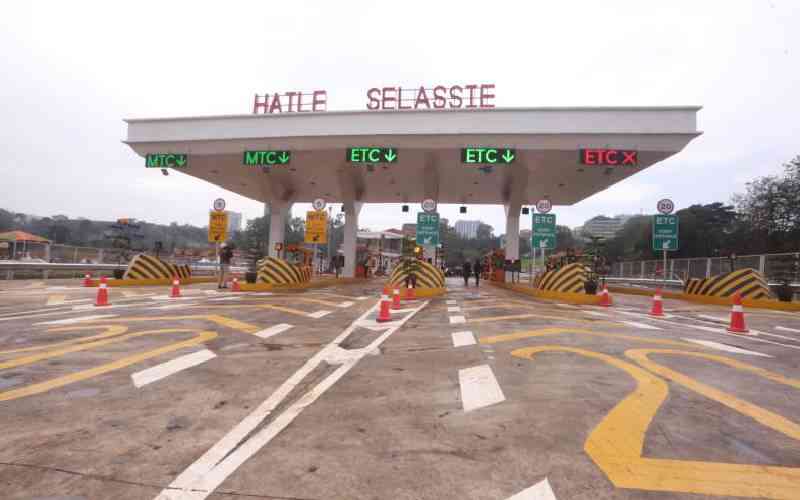Nairobi Expressway Tax Exemption Debt: A Multi-Billion Shilling Burden on Kenya’s Infrastructure Boom
By Street News Team, August 5, 2025
The Nairobi Expressway, a flagship infrastructure project aimed at easing traffic congestion in Kenya’s capital, has been hailed as a game-changer since its inauguration in July 2022. However, recent revelations about a massive tax dispute involving the project’s contractor, Cale Infrastructure Construction Company Ltd, have sparked public outrage and raised questions about the financial transparency of Kenya’s public-private partnerships (PPPs). A staggering KSh 6.92 billion tax debt has brought the spotlight on the complexities of tax exemptions and their impact on Kenya’s infrastructure ambitions.
The Tax Dispute: A KSh 6.92 Billion Blow
Cale Infrastructure, a subcontractor to Moja Expressway Company Ltd, recently lost a legal battle against the Kenya Revenue Authority (KRA) in the High Court. The court upheld KRA’s demand for KSh 6.92 billion in unpaid taxes tied to the Nairobi Expressway project. The contractor argued that it was entitled to tax exemptions on imported machinery, vehicles, tools, and materials, claiming the project was not fully complete as no performance certificate had been issued. Additionally, Cale Infrastructure pointed to a National Treasury undertaking to cover KSh 5.7 billion in taxes on materials consumed during the project. However, the court ruled that the completion certificate, issued on May 13, 2022, marked the end of the construction phase, nullifying any exemptions. The Treasury’s promise was also dismissed, with the court emphasizing that statutory tax liability rests solely with the importer—in this case, Cale Infrastructure.
This ruling has left the contractor liable for the full amount, a financial burden that could ripple through Kenya’s infrastructure sector. Posts on X have described the situation as a “shocker,” with some questioning who truly bears the cost of Kenya’s infrastructure boom. One user noted, “A Nairobi Expressway contractor is drowning in KES 7 BILLION tax debt after botched waiver promises. The twist? They were promised tax breaks on machinery/materials now KRA says PAY UP.”
Kenyatta Family’s Tax-Exempt Empire
Adding fuel to the controversy, a separate tax dispute has exposed the involvement of the Kenyatta family’s business empire in the Nairobi Expressway. Edge Worth Properties Ltd, a firm initially registered under Rose Wamaitha Ng’ote, was revealed to be a proxy for Enke Investments Ltd, a company linked to former First Lady Mama Ngina Kenyatta, her son Muhoho Kenyatta, and Goodison Trust Corporation. In 2022, Edge Worth declared KSh 1 billion in dividends payable to Enke Investments, benefiting from tax exemptions under section 7(2) of the Income Tax Act, which grants tax relief to companies controlling at least 12.5% of another company.
The Tax Appeals Tribunal ruled in favor of Edge Worth, confirming Enke Investments as the beneficial owner and dismissing KRA’s claim for KSh 249.2 million in taxes on shareholder loans. This decision has sparked public outrage, with many Kenyans expressing concerns over politically connected families leveraging state projects for private gain. Critics argue that the Nairobi Expressway case highlights the need for stricter conflict-of-interest laws to prevent such scenarios, especially as suspicions grow over the Kenyatta family’s potential involvement in the proposed Mombasa–Nairobi Usahihi Expressway.
Public-Private Partnerships: A Double-Edged Sword?
The Nairobi Expressway, built at a cost of KSh 88 billion under a PPP model with China Road and Bridge Corporation (CRBC), was designed to allow private investors to recoup their investment through toll collections over 27 years. However, the recent tax disputes underscore the financial risks of such arrangements. Taxpayers are already footing a KSh 24.8 billion bill for the expressway, despite it being marketed as a privately funded project. This includes costs for land compensation and utility relocations, raising concerns about double taxation as motorists continue to pay toll fees ranging from KSh 170 to KSh 500.
The financial strain doesn’t end there. The expressway reported a KSh 1.2 billion loss in the financial year ending June 2024, despite generating KSh 4.6 billion in revenue against KSh 5.8 billion in costs. This has led to calls from MPs, including Kisii Senator Richard Onyonka, for greater transparency on the project’s financial performance. The National Assembly’s committee, chaired by Kiambu Senator Karungo Thang’wa, is now tasked with investigating toll collections and operational inefficiencies to ensure the project’s long-term viability without overburdening taxpayers.
The Usahihi Expressway: A Repeat Scenario?
The Nairobi Expressway saga has fueled skepticism about the proposed 419-kilometer Mombasa–Nairobi Usahihi Expressway, a KSh 468 billion PPP project led by Usahihi Expressway Limited and backed by US-based Everstrong Capital. The project, which aims to reduce travel time between Nairobi and Mombasa to 4.5 hours, recently hit a roadblock when the PPP Committee rejected its Project Development Report (PDR) for failing to meet criteria under the PPP Act. Critics, including activist Okiya Omtatah, have raised concerns about potential conflicts of interest, alleging that the Kenyatta family may have stakes in the project through Cale Infrastructure, which took over Edge Worth Properties.
The Usahihi Expressway team has promised transparency, stating that feasibility studies are under review by the Kenya National Highways Authority (KeNHA), the PPP Directorate, and the National Assembly. However, public trust remains low, with many fearing a repeat of the Nairobi Expressway’s opaque financial dealings.
What’s Next for Kenya’s Infrastructure?
The Nairobi Expressway tax disputes highlight the delicate balance between leveraging private investment for infrastructure and ensuring public accountability. As Kenya pushes for more PPP projects, including the Nairobi-Nakuru-Mau Summit Toll Road, the government must address concerns about transparency, tax exemptions, and the involvement of politically connected entities. The KSh 6.92 billion tax debt and the Kenyatta family’s tax-exempt dividends have left many Kenyans questioning whether these projects truly serve the public or primarily benefit a select few.
For now, the Nairobi Expressway continues to ease traffic flow and boost property values along its route, but its financial controversies cast a long shadow. As one X user put it, “Who’s really paying for Kenya’s infrastructure boom?” The answer, it seems, is more complicated than the government would like to admit.
Stay tuned to Street.co.ke for the latest updates on Kenya’s infrastructure and economic developments.

